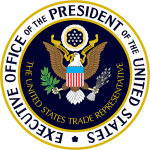
The 2020 Annual Intellectual Property Report to Congress was released by the office of the US Intellectual Property Coordinator (IPEC) within the US Office of Management and Budget (OMB) in early April.
The report is a combined effort between IPEC, the Departments of Commerce, Justice, Homeland Security, State, Treasury, Defense, Health and Human Services, and Agriculture, the Office of the U.S. Trade Representative, the U.S. Copyright Office, and the Executive Office of the President (the US Departments of Justice, Commerce, State and Homeland Security).
The report recognizes digital piracy in many forms, including piracy-enabled set-top boxes, illicit streaming devices, online piracy, illicit distribution on physical media and other forms of infringement, and describes how different US federal agencies collaborate and coordinate their efforts with US and International law enforcement to work against it.
It contains an inventory of dozens of individual piracy awareness initiatives and anti-piracy enforcement activities, coordinated between US agencies and with nationalities around the world, as well as with international organizations such as the European Commission, Europol, OECD and WIPO. IPEC also engages in outreach with private enterprise.
Access the 2020 IPEC/OMB Annual Intellectual Property Report to Congress (published April 2020)
Why it matters
This report complements two reports published by the Office of the US Trade Representative (USTR), which leads trade negotiations between the United States and its trading partners.
The USTR’s Special 301 and Notorious Markets reports identify trading partners that inadequately protect IP or enforce IP regulations, and identify “online and physical marketplaces that reportedly engage in, facilitate, turn a blind eye to, or benefit from substantial piracy and counterfeiting.”
This report carries a Trump Administration tone of voice. While it takes a concise inventory of the work of other agencies and identifies how the US has worked with agencies and nationalities outside the US, it also tries to justify why the US has withdrawn from the Universal Postal Union.
According to this IPEC report, more than a quarter of the 313 industries recognized by the US Department of Commerce are Intellectual Property (IP) intensive, collectively accounting for $6.6 trillion (38.2%) of U.S. GDP in 2014, and nearly one in three jobs in the United States.












